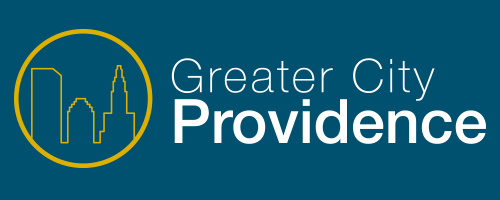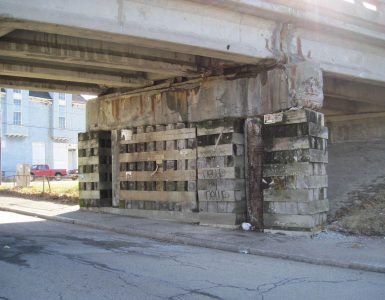The agency recently adopted a plan to reduce service and raise fares to close an expected budget gap. The service cuts will save a projected $650,000 and the fare increase will generate a projected $975,000.
Meanwhile the authority has spend approximately $1,000,000 due to bridges that they cannot cross. Costs come from using extra diesel on detouors, paying drivers for longer shifts, and in one case, purchasing a smaller bus.




I saw that the transit agency in Los Angeles just raised their base fare from $1.25 to $1.50. When I hear comments about how RIPTA’s fare structure is comparable to other agencies, I tend to take it with a grain of salt. I am also upset that a structural funding problem, that has been known about since 2002, has been ignored by those with the power to change it. Part of it is the public’s fault for not making transit more of an issue with the legislature, although you can argue that the public has voted with their behinds on the seats of buses that have increased ridership substantially. I read in the minutes of one of the RIPTA board meetings that this will send a mixed message about their strategy. On one hand, they have a plan to increase service and invest in streetcars. On the other hand, our current system cannot be sustained as currently structured, so we have to cut service and raise fares. Now I know they have to live within their means, and I am sure there are some routes that have extremely low ridership. However, it does not help their credibility to talk about a big strategic plan while at the same time decreasing access to their current system by raising fares and cutting service. That’s just my uneducated opinion, but, as a regular transit rider since I moved here in 2001, I am tired of the same problem year after year with no material action. RIPTA does the best it can with their available resources, and I do not mean to condemn them as an agency. They have done a great job over the years attracting more riders to the system. It’s just frustrating knowing that they could take the next step if they just had more political support.
The answer may in part be with groups like the Coalition-for-Transportation-Choices. If a thousand people show up at the state on a regular basis and high-level business community leaders become involved to advocate for transit, pressure can be exerted on the General Assembly and eventually they will be forced listen and act. It is commonly known within the economic development and business realms, and even with some in government that the metropolitan regions that are attracting new businesses and population are places that have a strong well funded public transportation systems. And, these regions are not all in the Sunbelt or out west. There must be a relentless effort to keep transit a front burner issue. The current pattern is that RIPTA is pretty much ignored until the annual end of the fiscal year crisis when pressure is applied and “emergency” funding is found.
With the vulnerability of Rhode Island’s coastline with even a minor climate change shift; the hundreds millions of dollars annually that Rhode Islanders send to energy producing regions; and with the current manmade environmental calamity unfolding in the gulf that has no end in sight, selling the idea of well supported public transportation in a highly urbanized and compact state that was mostly built on transit shouldn’t be that difficult. Historically when Rhode Islanders agree and decide to support an issue or an idea, change happens quickly. The problem with public transportation is that it is perceived to be a side issue that benefits a fringe group or groups. There may be 10,000 to 20,000 or so people that regularly use RIPTA, but here are over a half-million private passenger cars (not including light trucks and commercial vehicles) with a least as many drivers. The key is to make public transit a mainstream issue.
So the public hearings for the fare increases have been scheduled for early July. I will now have to shell out $84 more a year for my pass + an additional $72 per year for my daughter’s 15 ride passes. I understand that costs go up and I understand that this is a nationwide issue. But this does nothing to address the structural funding issue with the agency. IIRC, RIPTA is using over $3M in federal stimulus money to close the budget gap for 2011. If that is true, then what happens next year when that money is not available and no other revenue sources are found? More cuts and more fare increases on a system that, while doing the best it can, has been neglected and left to struggle to maintain its current level of service. The CFTC ideas are a good start, but they will face an uphill climb on Smith Hill as long as automobiles are at the top of the transportation food chain. I am normally very optimistic about the future of the agency. I am just so frustrated by the recent events and those of the past 9 years. Sorry, I had to vent. Can’t we at least commit to transit as much as Delaware for goodness sakes?
Don’t look at LA’s base fare. The way transit funding is set up there, there’s an allocation of money based on “ridership”, which is computed as fare revenue divided by base fare. So transit agencies have every incentive to keep base fare as low as possible while getting revenues from things like having no free transfers, in order to maximize their “ridership” in this formula.
So now, after saying that fare increases would allow RIPTA to avoid a service reduction, now the agency is proposing to reduce service in addition to raising fares. I have one word for you: FAIL.
Once again, no action was taken by state government to address this budget shortfall. Bills were introduced by the CTC and others that could have addressed the funding shortfall and no vote was taken. So now, riders will bear the brunt of the the structural deficit that is perpetually rearing its ugly head year after year. The only hope is the federal bill that would throw a $2 billion lifeline to transit agencies to avoid service cuts and fare increases. However, assuming this becomes law, what confidence do transit users have that this money would be replaced next year?
The gas tax increase was supposed to solve the funding shortage. This did not happen. This will be the fourth time since 2001 that RIPTA has raised the base fare. Do we really think that this will have any impact? You can bet that next year more cuts and increases will occur.
I am trying to stay positive about the future of transit in Rhode Island. I do my part every day by riding the bus to work, taking my kids to school, and using it as much as possible on the weekends. However, given the track record of real action taken to improve the fiscal health of the agency, it is getting real hard. Beyond frustrating to say the least.